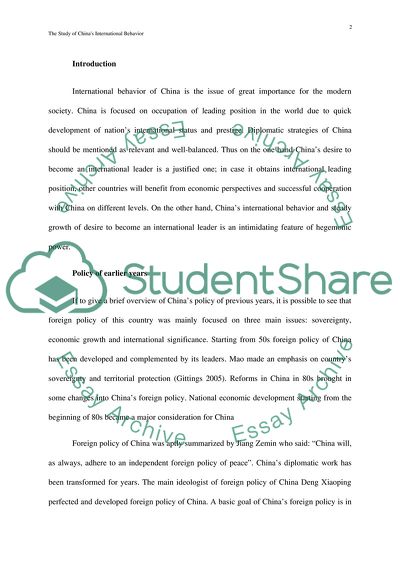Cite this document
(The Study of Chinas International Behavior Research Paper, n.d.)
The Study of Chinas International Behavior Research Paper. Retrieved from https://studentshare.org/people/1741621-the-study-of-chinas-international-behavior
The Study of Chinas International Behavior Research Paper. Retrieved from https://studentshare.org/people/1741621-the-study-of-chinas-international-behavior
(The Study of Chinas International Behavior Research Paper)
The Study of Chinas International Behavior Research Paper. https://studentshare.org/people/1741621-the-study-of-chinas-international-behavior.
The Study of Chinas International Behavior Research Paper. https://studentshare.org/people/1741621-the-study-of-chinas-international-behavior.
“The Study of Chinas International Behavior Research Paper”, n.d. https://studentshare.org/people/1741621-the-study-of-chinas-international-behavior.


